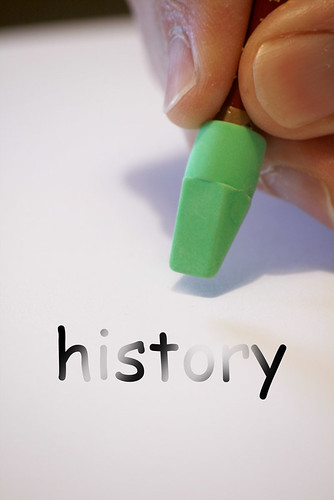My least favorite subject in school was anything that had anything to do with history. My attitude was who cares about stuff that's already happened? But then, I became fascinated with a particular piece of history. So fascinated that I wanted to write a book about it. And I learned that writing history is some of the hardest writing you'll ever have to do.
The Past Isn't the Past
History is definitely my favorite subject nowadays. I'm fascinated by period movies, historic novels, films made in the 1930s. Naturally, I wanted to write about history in order to sink myself into this obsession.
So for about two years, I became completely enraptured with a particular book project (it's the one I've mentioned several times in previous posts). Most of that time was not spent writing.
When you write about history, you have to research. Start with figuring out your own timeline. When does the story take place? Where does it take place? Now you need to look at particular historic events that occurred during your timeline. What happened in the world? What happened in the country where the story takes place? What happened in that particular city or town? Certain events will supersede your story. Because of particular historic significance, you'll be forced to include these events in the narrative somehow. For example, if your story occurs in Paris during the 1940s you absolutely can't ignore the German occupation because this affected everyone in Paris. Omitting it would be very bad storytelling.
Once you have a rough idea of the historic events that happened within the framework of your story, you can start to create a timeline. But you're not even close to being done with your research. Much of what you need to know you won't even discover until you sit down to write.
Writing history is a very stop-and-go experience. As soon as you get on a roll and you're in the zone, a question will crop up. Your character is in the middle of putting on a dress, and you have to say stop. What did the dresses look like in this particular year? What did women wear under them? What about the shoes? And how might she style her hair? You might not need all of this info, but you should gather all of it -- because you never quite know where a scene is going. I once had to stop writing my book while I researched the history of writing utensils for over an hour. This was due to a two-paragraph scene in which my character had to scribble a note.
Little details matter when you're writing history. And even if you're an obsessive researcher like me (because secretly I love doing it), you can easily screw this up. Because odds are good that you weren't born during the 1830s, so you're going to have trouble writing about it like you were really there. You can research the events, the setting, the clothing, the food, the writing utensils and even the furniture. But you're still not going to know the dialogue. It's very difficult to accurately capture the daily life, the local flavor and the particular nuances of a certain point in history.
Ordinary research techniques aren't enough. You have to go even further when you're writing history. Look for letters, diaries and other writings that were created during this time. Start reading. Absorb the flow of the words, the sentence structure, the colloquialisms. Look at pictures and maps of the era. Study the architecture, the methods of travel, how they used to cook chicken (or whatever). Every detail has to be accurate when you're writing history because so many people love it, and certain readers will get frustrated over inaccuracies in even the most minor points (I'm one of those readers).
When you're writing history, you simply have to do a whole lot more. This is why so many writers avoid it, but when it's done well you may just create something amazing.











0 comments:
Post a Comment